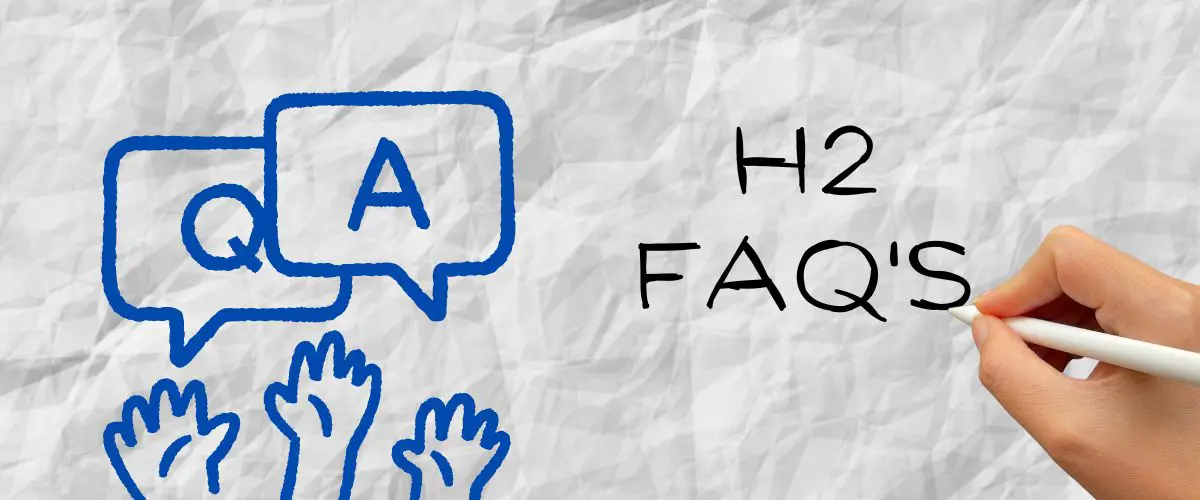
Toyota Unveils Alberta’s 1st Fleet of Hydrogen Vehicles Through Edmonton Airport Partnership
July 19, 2023The innovative partnership will see 100 Toyota Mirais on Alberta’s roads.
Edmonton International Airport (YEG) has partnered with Toyota Canada to bring 100 of Toyota’s Mirai zero-emission hydrogen vehicles to Alberta roadways. The fleet of hydrogen fuel cell electric cars will be the first in the Canadian province.
This partnership is part of the airport’s plan to be net-zero by 2040.
The initiative, a key development in Alberta’s adoption of clean fuels, will lower carbon emissions, contributing to Edmonton International Airport’s decarbonization goals.
The mass adoption of fuel cell vehicles requires both a demand for hydrogen vehicles and hydrogen fuel supply. To achieve this goal and help decarbonize the fleets used by the Airport City Sustainability Campus, YEG has been coordinating efforts for a variety of fleets and fuel suppliers to invest in the tech.
“These vehicles and our partnership with Toyota Canada will help reduce emissions, attract investment and kick-start the Edmonton Metro Region’s 5000 Vehicle Challenge, which aims to have 5,000 hydrogen and hydrogen dual-fuel vehicles on the road in Alberta by 2028,” Edmonton International Airport President & CEO Myron Keehn said about the partnership.
In addition to hydrogen vehicles, the airport also has its sights set on a hydrogen refueling station.
While the airport is diligently working toward securing the most economical supply of clean hydrogen made in Alberta for its hydrogen vehicles, it has also partnered with Air Products, the largest producer of hydrogen in the world.
Through the agreement it has made with Air Products, an interim mobile hydrogen refueling station will be available at the airport.

“Air Products’ innovative and efficient mobile fuelers will accelerate the use of hydrogen as an emissions-free transportation fuel as permanent hydrogen infrastructure is built in Western Canada,” said Eric Guter, Global Vice President, Hydrogen for Mobility, Air Products
YEG’s diverse partnerships will help Alberta’s hydrogen economy grow.
 With its 2040 net-zero emissions fueling its drive, the Edmonton International Airport is dedicated to building partnerships and opportunities for the adoption of hydrogen vehicles and infrastructure as well as other emerging sustainable technologies.
With its 2040 net-zero emissions fueling its drive, the Edmonton International Airport is dedicated to building partnerships and opportunities for the adoption of hydrogen vehicles and infrastructure as well as other emerging sustainable technologies.
“YEG’s fleet of Toyota Mirai FCEVs will help accelerate the use of hydrogen in Alberta and having on-site hydrogen fueling infrastructure will make them a true hub, spurring the growth of Alberta’s hydrogen economy,” said Stephen Beatty, Vice President, Corporate, Toyota Canada Inc.
Example of mobile refueling…
 Q1: What is the partnership between Edmonton International Airport and Toyota Canada about?
Q1: What is the partnership between Edmonton International Airport and Toyota Canada about?
A: Edmonton International Airport (YEG) has partnered with Toyota Canada to bring 100 of Toyota’s Mirai zero-emission hydrogen cars to Alberta roadways. This is a significant step in Alberta’s adoption of clean fuels.
Q2: Why has Edmonton International Airport decided to bring fuel cell cars to Alberta?
A: The introduction of hydrogen cars is part of the airport’s plan to achieve net-zero emissions by 2040. The move is expected to lower carbon emissions, contributing to Edmonton International Airport’s decarbonization goals.
Q3: Who are some other partners involved in this initiative?
A: In addition to Toyota Canada, Edmonton International Airport has also partnered with Air Products, the world’s largest producer of hydrogen. They will provide an interim mobile hydrogen refueling station at the airport.
Q4: What is the significance of these hydrogen fuel cell electric cars?
A: Hydrogen fuel cell electric cars, like the Toyota Mirai, emit only water vapor as exhaust, making them a more environmentally friendly alternative to traditional gas-powered vehicles. Their adoption will help reduce carbon emissions and attract investment into the region’s hydrogen economy.
Q5: What is the Edmonton Metro Region’s 5000 Vehicle Challenge?
A: The Edmonton Metro Region’s 5000 Vehicle Challenge is an initiative aiming to have 5,000 hydrogen and hydrogen dual-fuel vehicles on the road in Alberta by 2028. This partnership with Toyota Canada is a key step towards achieving this goal.
Q6: What are the future plans for hydrogen vehicles and infrastructure at Edmonton International Airport?
A: YEG is dedicated to building partnerships and opportunities for the adoption of hydrogen vehicles and infrastructure as well as other emerging sustainable technologies. While the airport is working toward securing a supply of clean hydrogen made in Alberta for its hydrogen vehicles, it also has plans for a hydrogen refueling station.
Q7: How does this partnership contribute to Alberta’s hydrogen economy?
A: This partnership will not only introduce hydrogen vehicles to Alberta’s roads but also encourage the establishment of hydrogen fuel supply and infrastructure. It will accelerate the use of hydrogen as an emissions-free transportation fuel, spurring the growth of Alberta’s hydrogen economy.
Ready to test your knowledge on the most abundant element in the universe? Take our fun and engaging Hydrogen Quiz now! [forminator_quiz id=”58712″]




 With over 15 years of reporting hydrogen news, we are your premier source for the latest updates and insights in hydrogen and renewable energy.
With over 15 years of reporting hydrogen news, we are your premier source for the latest updates and insights in hydrogen and renewable energy.
The partnership between Edmonton International Airport and Toyota Canada to introduce 100 Mirai hydrogen vehicles to Alberta is a significant step towards a sustainable transportation future. This initiative not only supports the airport’s goal of being carbon neutral by 2040, but also contributes to the adoption of clean fuels and the reduction of carbon emissions in Alberta. By investing in hydrogen vehicles and infrastructure, YEG is playing a key role in driving the growth of the hydrogen economy in the state and accelerating the use of emission-free transportation in the region. These innovative partnerships are key to creating a greener, more sustainable transportation landscape.